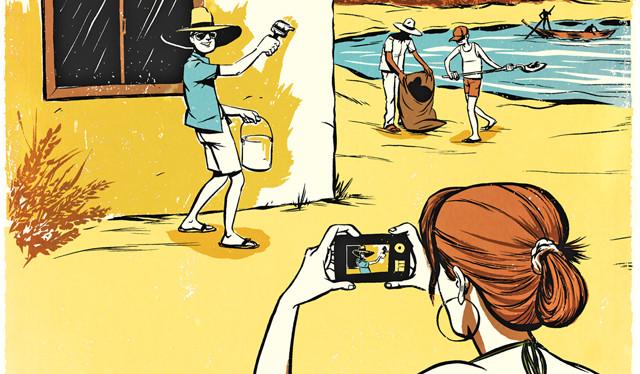The stakes of getting into medical school are higher than ever, and many students are looking for ways to make their resumes the “diamond in the rough.” One popular solution is to offshore one’s education to developing countries and work with underprivileged citizens by offering them medical care. Medical voluntourism, at first glance, may seem like a noble and virtuous way to spend one’s vacation, however, in reality, it has detrimental effects on the patients, health care system, and infrastructure of the country visited.
Medical voluntourism is characterized by taking short trips abroad to developing countries and providing voluntary medical care. However, this process permits untrained and underqualified students with little experience to practice directly on patients who require a higher degree of care and sometimes without the careful policies of U.S. malpractice law. In addition, volunteers usually donate short periods of time to the cause, leaving patients without long-term treatment plans. This is destructive to the lives of people who require consistent, continuous therapy and medical assistance. Without the ability to travel or afford better treatment, patients are left with little option but to accept the short-term care at hand.
In addition, medical voluntourism shifts the priority from training long-term local medical employees and residents to training temporary student volunteers. Much of the independent work done by students could instead be given as training to nurses and doctors within the area. While work completed with residents can sometimes facilitate an exchange of experiences, it often backfires due to a lack of communication and the forcefulness of the American students. Since local patients are commonly unable to afford any better treatment, this forces them to accept the lower-quality treatment that poorly trained students can offer. Patients in areas receiving medical tourists are also less likely to invest in their own health insurance, opting instead for the cheaper but less-reliable care from students. Residents then encounter irregular periods of access to healthcare making them susceptible to outbreaks.
The change needed in the medical voluntourism industry can start here at UC San Diego. Although the clubs here are better regulated in terms of volunteer ethics, there is still room for improvement. This year, the Global Medical Brigades club is taking a trip to Latin America; the club has gone on 13 brigades, raising over $570,000 for multiple two-week trips, and profiting off the undergraduate desire to work in the medical field under the pretense that they are helping developing countries. In reality, they are developing their own resumes without having to find competitive internships or heavily regulated work in the United States. The volunteers are given the opportunity to take vitals and patient history, shadow licensed doctors in medical consultations, and assist in a pharmacy under the direction of licensed pharmacists. However, there is no long-term plan to develop these countries’ healthcare system. Another student organization, the Flying Samaritans, raise $8,500 every year to travel to Mexico and “educate” youth about healthcare practices. That amount of money could be better used to provide underprivileged youth with daily health products such as bandages, painkillers, and feminine hygiene products. Better yet, it could be used to aid a local school nurse’s paycheck, who remains in the country year-round and can be accessible for the long-term health of patients.
The competition in California to receive hospital internships or even shadow a doctor is skyrocketing, and medical voluntourism seems to offer a quick solution to this, especially for those with the money to shell out. Flying Samaritans and the Global Medical Brigades club advertise their events and volunteer trips to any passionate university students with virtually no recruitment or selection process, making it an easy work-around for students looking to gain experience in the healthcare field. UCSD does a mediocre job of regulating club activities, and has allowed these trips to go on for years without a complete understanding of their negative impact. Instead, the money they have raised could be used to establish medical, government, and educational infrastructure. It could also increase public health research and develop human capital to create a long-term plan that would end these lavish trips completely. If we do not take steps to encourage the countries we visit to develop themselves, we only work them into a cycle of dependence, ensuring an indefinite number of brigades and voluntourism trips in the future. The university and the clubs that sponsor medical volunteer trips must come to the understanding of the true influence and ethics of their work and make changes to their long-term plans accordingly.
Voluntourism, a poorly regulated, $173 billion industry, is shamelessly fueled by international agencies charging thousand-dollar trips with the promise of self-fulfillment. Although the industry is known for grossly profiting off of developing countries, there are better routes available for the determined volunteer. Organizations can fundraise with the same energy for the cause and can invest in organizations that have established long-term plans to aid the community. If students choose to offshore volunteer efforts abroad, they ought to search for voluntourism agencies that are economically, socially and environmentally minded as well as focused on a long-term goal of developing the country instead of profiting from it.








